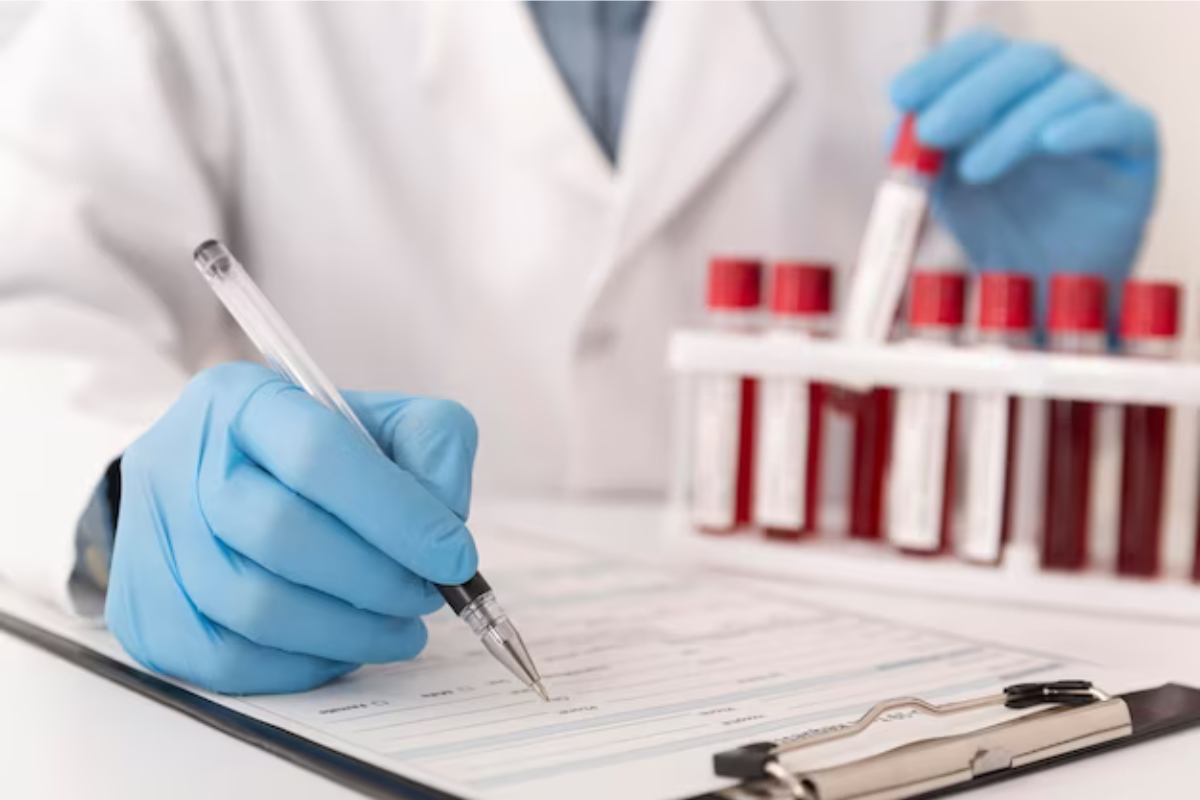A blood test, also known as a blood panel or blood work, is a medical procedure in which a sample of blood is collected from a patient for analysis in a laboratory. This diagnostic test provides valuable information about various aspects of a person's health, helping healthcare professionals assess and monitor different conditions. Here are some key details about blood tests:
-
Purpose:
- Disease Diagnosis: Blood tests can help diagnose a wide range of medical conditions such as diabetes, anemia, infections, and liver disorders.
- Monitoring Health: They are useful for monitoring the effectiveness of ongoing treatments and managing chronic conditions.
-
Components of a Blood Test:
- Complete Blood Count (CBC): Provides information about the number and types of blood cells, including red blood cells, white blood cells, and platelets.
- Blood Chemistry Panel: Measures levels of various substances in the blood, such as glucose, cholesterol, electrolytes, and enzymes.
- Blood Clotting Tests: Assess the blood's ability to clot properly.
-
Common Blood Tests:
- Lipid Panel: Measures cholesterol levels to assess cardiovascular health.
- Blood Glucose Test: Screens for diabetes or monitors glucose levels in diabetic patients.
- Liver Function Tests: Evaluate the health of the liver by measuring enzyme levels.
- Kidney Function Tests: Assess the kidneys' ability to filter waste from the blood.
- Thyroid Function Tests: Measure hormone levels to assess thyroid function.
-
Procedure:
- A healthcare professional typically draws blood from a vein in the arm using a needle and syringe or through a fingerstick.
- The collected blood is then sent to a laboratory for analysis.
-
Preparation:
- Fasting may be required for certain tests (e.g., cholesterol or glucose tests), meaning the patient should avoid eating or drinking for a specified period before the test.
-
Interpretation:
- Results are usually provided in a report that details the values obtained from the blood sample.
- Healthcare providers interpret these results in the context of the patient's medical history and overall health.
-
Significance:
- Blood tests play a crucial role in preventive care, early disease detection, and ongoing health management.
- They assist healthcare professionals in making informed decisions regarding treatment plans and interventions.
It's important for individuals to follow their healthcare provider's guidance regarding blood tests and to discuss any concerns or questions they may have about the results.
